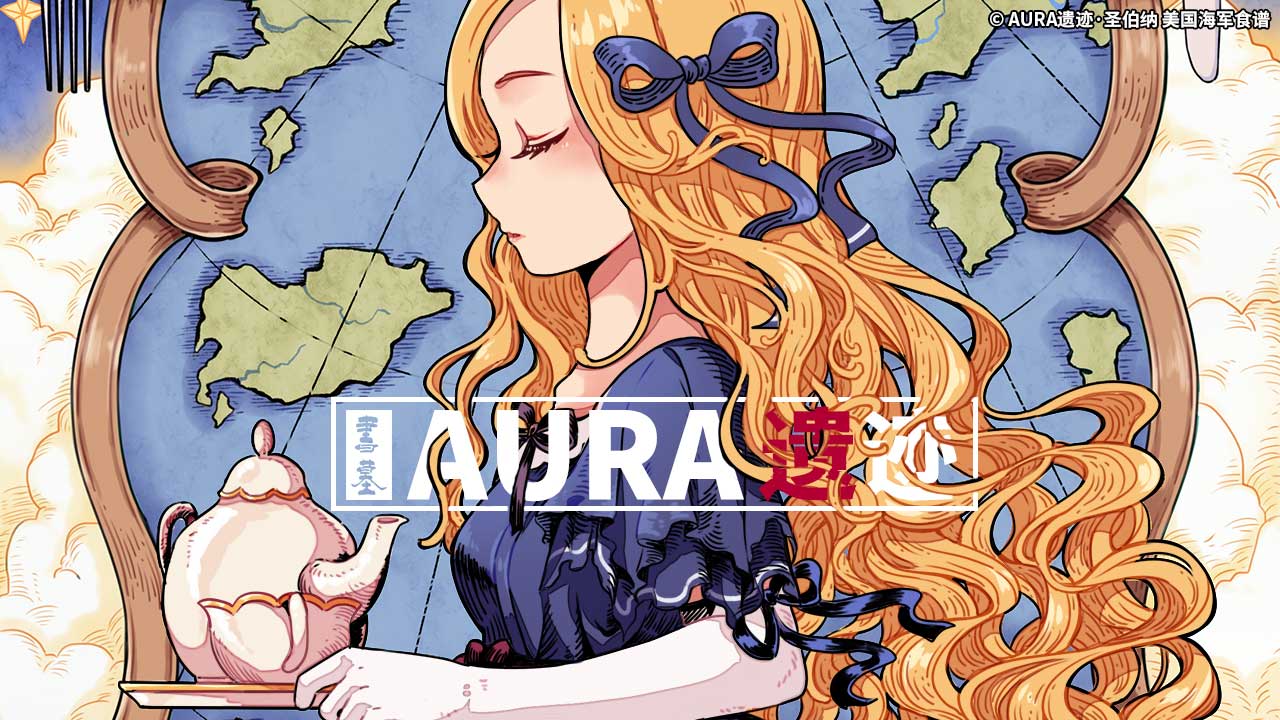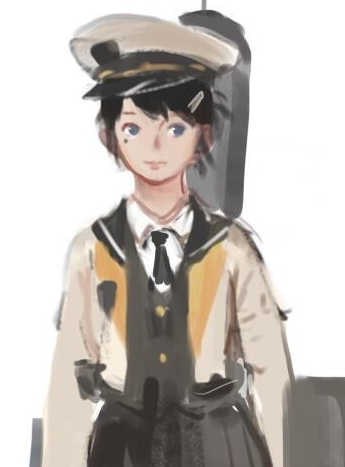HI! I’m relatively new here so sorry in advance if my question has already been answered! Is there such a thing as shipgirls/abyssals that have gone rogue or switched sides, and if so would the pacific team ever cover them?
Or something like this.
Wouldn’t it be kool if you have DARK shipgirls?
Or something like this.
How good is STEC’s propaganda department? Because here’s what I’m thinking. If they’re good enough to keep the conspiracy theorists chasing their tails then they have to be really good at disseminating information, right?
Any chance you can get the Abyssals to turn? To fight each other I mean?
First of all, on that last point, it’s kind of an inside joke that STEC keeps an eye out for recruitment on the (primitive) internet discussion groups. Pacific is 1990s tech with some elements of modern and even post-modern lifestyles thrown in. The shipgirls are generally exceptionally good at suppressing the Abyssals before they get anywhere close to shore-based facilities, but you’ll always have the one or two oddballs claiming that something’s not quite right. STEC itself may or not be actively feeding those conspiracy theories.
Secondly, the answer to this is no. Let me explain why.
Generally, propaganda takes form in several elements. From our own Army War College’s manuals on psychological warfare, propaganda focuses on the following elements:
- Divisive propaganda are propaganda pieces designed to sow discord within the command structure of an opposing force. Interservice rivalry is a big one and it was historically used to great effect both in Europe and in the Pacific. Pointing out that the officers didn’t care for their men and ate well while they starved caused no small amount of consternation in the Guadalcanal campaign.
- Subversive propaganda are propaganda pieces that are designed to undermine one’s basic fundamentals or the core values in which one is fighting for. Historically, works in this category tend to ask more nuanced philosophical questions. Questioning the noblesse of the Great East Asia War was one example. Allowing Japanese soldiers to know of their own atrocities. as well as the increasingly poor conditions in which the wartime government placed on their family members, was another. What worked the best, though, was asking whether or not this was really what the Emperor had wanted.
- Enlightenment propaganda are propaganda pieces that are designed to educate – that is to say, to shake the enemy’s resolve through the introduction of new information. Historically, for instance, we introduced a large number of pamphlets in the Pacific theater showing the Japanese that we were human rather than monsters. We also offered them a perspective of our own viewpoints – showing ’em just what exactly is the whole “mom and apple pie” thing that we’re fighting over. Years later, we were on the receiving end with this in the Korean War – I’ve got some interesting scans from back home about pamphlets that the Communist forces were dropping on our lines.
- Despair propaganda are propaganda pieces in which we’re likely familiar with – the idea is to induce despair or negative feelings in those fighting, either through demonstrating the superiority of the opponent or the disclosure of losses.
Okay, now look at this list.
Then remember that the first thing humanity got hit with was quite literally a heavy dose of psychological warfare. Remember what happened to the US naval taskforce off the coast of Korea? In the end the human mind broke before the ship did. The Abyssals are masters of manipulation and will use every card they have in the deck to destroy humanity. To not defend against this would be folly.
The thing is, which one of these would actually work on a shipgirl?
How does an Abyssal “enlighten” a shipgirl on the “wrongness” of humanity? “We aren’t horrible space monsters we just want to create everlasting peace by wiping away every last atom of human civilization?” “We’re just defending the environment by eating all of you?” “Humans are bad and therefore they should be killed?”
I mean, the core tenet here is that the Abyssals want to erase your existence from the planet. They then tend to actually strip the planet itself bare, leaving it a barren rock. It’s not that we (STEC’s POV) don’t know that this is what they do. The Heart of Avalon has spat out enough documentation from other worlds for us to know that this is a fact.
Humanity may be dumb, vulgar, capricious, malicious, and in some cases downright suicidal or insane, but do you honestly see any shipgirl fall to this trap? Think about what would even cause the shipgirl to show up in the first place!
Piece together what you’ve learned so far. How is it that some shipgirls have vivid memories of historical events, or even some other Abyssal war?
How would they know what they know?
Given that they know what they know (sorry for being wordy), why would any subversive propaganda work in the first place? The shipgirls are fighting a purely defensive war. The Abyssals are full-on aggressors. They aren’t conquerors because they don’t want to rule over humanity. They aren’t liberators because they don’t seek to impose an ideal over humanity. They are simple aggressors and destroyers. Their goal is to destroy humanity.
An Abyssal has never offered anything like a ceasefire or a treaty to any aspect of humanity, shipgirl or otherwise. Even intelligent humanoid Abyssals with “identities” such as “ARTOIS” or “LAUFEY” does not seem to have a full capacity for reasoning or thought. They don’t understand humanity, makes no effort to understand humanity, and have zero sympathy for humanity. How could they create anything close to effective subversion without the above?
… Let me veer off into another territory. Suppose you have an Abyssal intelligence who manages to understand humanity. They understand the full-on implication behind their war of interdimensional extermination.
What happens when that Abyssal asks, why? Why do we hate humans?
What happens if the Abyssal decides that “because we do” is an insufficiently deep answer – even if it is working to further the goals of the Abyssal fleet? What if it wants to learn more?
Don’t you think it’s in the best interest of the overarching Abyssal intelligence to make sure that none of their agents ever develop this sort of autonomy? Wouldn’t it make sense for them to nip any intelligent learning as such in the bud?
Now you see why the Abyssals cannot really engage in subversion. At most they may be able to convince the humans to do it for them. Any Abyssal that is sent to understand how humanity function will learn nothing or learn too much. There is no middle ground.
Okay, how about sowing division? Get the shipgirls to fight each other. Get them to hate their officers. Problem solved.
Plenty of issues here.
Due to the nature of STEC’s organization, STEC is never going to be anything large enough that the commanding officer couldn’t just have a sit-down with everyone. In fact, that’s part of Mike’s job. He is response for the spirit of the shipgirls as a whole. He’s also quite literally manning the hub – the mothership, so to speak – of STEC’s fighting force. If humanity is to lose this war he’s probably actually going to be one of the first to die, because there’s no way the Abyssals would pass up something like Avalon base.
(In fact, I’d say taking out Avalon base would be priority number 1. It’ll decapitate STEC’s intelligence network, prevent global deployment, and create enormous technological and material setbacks all at the same time)
Secondly, shipgirls are GIRLS. Women are naturally more empathetic and they communicate a lot more often with each other than men (on average). Also, something you guys might not know, but gossip travels faster than the speed of light. We have something of a herd mentality there where if anyone is feeling down others’ll pop over and help things out. To sow division and cause infighting you’re going to have to simultaneously take out and completely shake, oh, I dunno, maybe 2/3rds of the shipgirls currently introduced out of our cast of close to 100 characters. Then you still have to actually remove the peacemakers like Langley and Mary.
Good luck convincing Iowa or Jer that STEC doesn’t care for their well-being when they both know first-hand what an uncaring bureaucracy actually looks like.
Good luck convincing Pennsy or Sanny that America’s not worth fighting for.
Or the Yorktown trio that sacrifice is meaningless. Or a certain swashbuckling CV girl that rules and regulations are bad.
Thirdly, STEC is self-sufficient as an organization when it comes to fighting the Abyssals. It’s ran by fairies, remember? You can’t deny STEC resources or claim that the _____ is sabotaging their efforts like the IJA/IJN. That’s kind of why STEC was built-up to begin with. Denying political support? Yeah, good luck accomplishing that when the opposing force just wants to nom ya. “Let’s pressure the president to remove ____ because -”
Because what?
Nevermind the fact that Truman and Eisenhower’s direction to STEC accounts for the possibility of the entirety of civilian command being crippled by an alpha-strike on the Abyssal Fleet’s part. I’ve mentioned again and again that STEC is independent. For it to be independent it means it possess quite a bit of power to act on its own initiative. You didn’t think they might take potential Abyssal interference into account when creating this organization?
So, okay. Despair propaganda. This might work. After all, the Abyssals are technologically far ahead of humanity, their numbers seem limitless, they appear to be inscrutable, and they seem impossible to defeat.
Again, see previous point, point 2. You need to somehow demoralize the entire organization in order to start sowing despair in the rank. That’s the first thing.
Second thing. These are shipgirls.
Stripped of all weapons and equipment, kill all their fairies. What do you have? You still have a fairly powerful individual possessing toughness and durability far beyond that of anything the planet’s ever seen and an innate ability to carve through Abyssal defenses like a knife through butter. They aren’t exactly limited in the same way as ordinary humans are.
That, and like I said, being a shipgirl is a completely voluntary thing. Before they appear, shipgirls know what they’re getting themselves into. They very well may fail in their objective – preventing the Abyssals from destroying humanity – before the Abyssals can get them to give up.
So, there you have it. Hope that answers the question clearly enough. I’ll conclude with one final note.
Generally propaganda is used to decrease the effort in which it’d take to win the war. This is because in real life, wars are constrained by many things such as material and manpower. If you need 1000 casualties to take a hill and you can print some propaganda leaflefts to scare the enemy off, that’s 1000 casualties you don’t have to take.
The issue here is the Abyssal approach to “war” is very different from ours. Its objective is destruction. Having something that’s not directly contributing to that goal is something that’s pretty horrendously alien to it. It’d be a silly idea to get the opponent to switch to our side if I’m still going to kill her at the end of the day.
“Well, it’ll make destroying humans that much easier!”
Yes. But why should I waste the effort on something that may or not work when I can warp in stronger Abyssals to accomplish the exact same thing?
Furthermore, the Abyssal fleet have no tolerance for traitors. A unit not performing up to par will be immediately eradicated. If a shipgirl “unit” (because that’s how they’ll see the shipgirls are) turns against its “side” then it must also be defective. Again, why would the Abyssal fleet use a defective unit when it can use a functional one?
PS. If after reading all this you STILL have ideas about how to subvert the shipgirls, please send me – I mean, the Abyssal fleet, a message. Thanks! We look forward to receiving your ideas.


